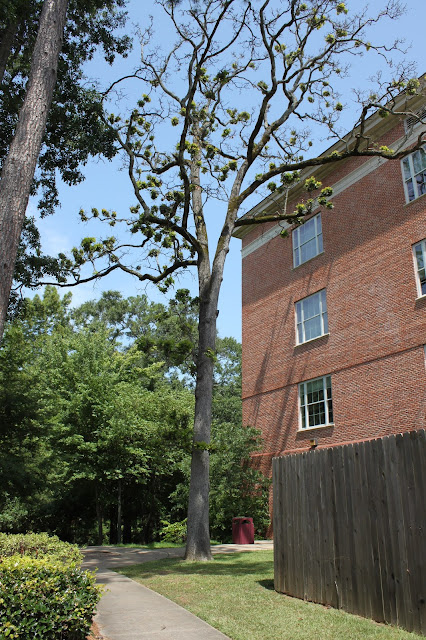After a hopeful spring has passed, we now must conclude that the Centenary College campus is losing several large, on-site native post oaks (Quercus stellata). As of yet, an official count has not been conducted, but you can find gnarly, leafless branches in Crumley Gardens and on the south side of Cline Hall. Within the arboretum collection, we are losing one post oak, which is located at the south west corner of Mickle Hall.
 |
| Our tree of the week, a dying on-site native post oak, was featured previously on the blog. You can find that old post here. We do not have an age for this specimen. Its existence predates the arboretum. |
 |
| Looking up, we see clusters of leaves scattered among bare twigs and heavy branches. |
 |
| Leaves aren't falling, and they appear to be perfectly healthy, but, the overall appearance of this post oak suggests it is struggling. |
The sight of mature, dying post oaks is not unique to the Centenary College Campus. While driving around Shreveport and Caddo parish, keep an eye out for the ominously naked, twisting branches. Our problem is reminiscent of the 'rapid post oak decline' that Texas experienced in 2016. The consensus from Texas seems to be that the post oaks we are losing today went into decline during the 2011 drought, and the subsequent years of fluctuating weather patterns did not allow these oaks to make a recovery.
You can find more information about rapid post oak decline in Texas at the following links:
"Why are post oaks dying? The cause may be drought followed by deluge." (Texas A&M)
"Rapid Decline of Post Oaks in Texas" (Texas A&M)

